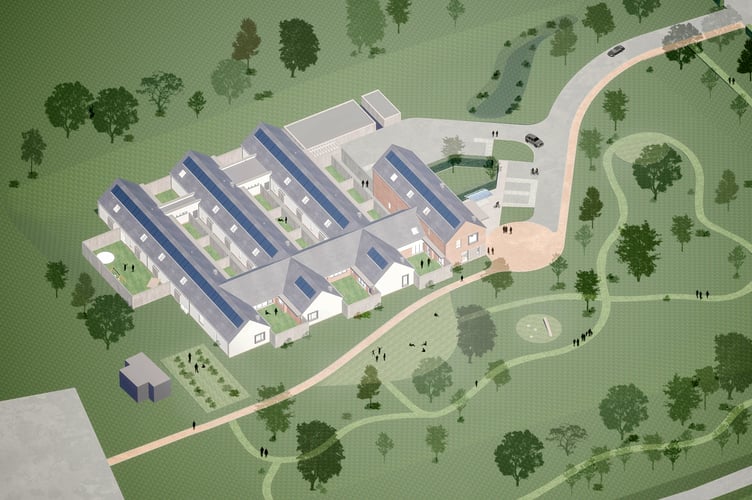THE NHS will be investing more than £40m to improve acute mental health care in the South West for individuals with a learning disability and autistic people.
A total of 20 new mental health hospital beds will help bring an end to long-distance placements, making life better both for individuals who need hospital treatment, and for their families, friends, and carers.
This will go hand-in-hand with improvements to local care and support of individuals with a learning disability and autistic people so they can live healthier, happier lives in their local communities.
Two new 10-bed units, in Bristol and Devon, will be designed specifically to care for individuals with a learning disability or autistic people who would benefit from treatment in a hospital and whose needs cannot be met in a mainstream mental health hospital, even with reasonable adjustments.
It is the first-time systems across the region have worked together to deliver these services and while it will result in an increase in beds in the South West, it will not result in more people being admitted to hospital.
Instead, only those who genuinely need to be in hospital can be, and closer to home. Only a very small number of people will require these services.
Subject to planning permission, a new 10-bed facility will be developed at the Blackberry Hill Hospital site, Bristol, run by Avon and Wiltshire Mental Health Partnership NHS Trust (AWP) and another 10-bed centre is proposed for the Langdon Hospital site in Dawlish, which would be run Devon Partnership Trust (DPT).
Also in Devon, a Capital Grant was secured for two fully wheelchair accessible, two-bedroomed bungalows incorporating a range of adaptations to meet the needs of people with learning disabilities and/or autism who are experiencing crisis or those individuals who have complex, distressed behaviour.
One bungalow will be used as long-term accommodation, the other as short-term accommodation for those in crisis to help to avoid admission. Examples like this are happening across the South West.
Jill Crook, Director of Nursing at NHS England South West, said: “This is fantastic news for the South West and represents years in the making of hard work to drastically transform the health services available for individuals with a learning disability and autistic people.
"This is part of a wider programme of work, including continued improvement to community services and the new beds will not result in more people being admitted to hospital, instead only those who genuinely need to be in hospital can be, and closer to home.
"We are working hard across our systems, and importantly with people with lived experience to get this right.”
Tina Emery, South West Regional Representative and Director for the National Network of Parent Carer Forums said: “This is brilliant news for families and their loved ones in the South West.
"For far too long parents and carers have had to travel hours at a time, often hundreds of miles from home to visit their loved ones.
"New services in the South West will make it easier for parents and carers to visit, support and advocate for their loved ones, speeding up the process of recovery and them returning home.”
Dr Sonja Manton, Director of Strategy at Devon Partnership NHS Trust, said: “This is a hugely exciting development. We know that there are people with a learning disability, autistic people, or people with other vulnerabilities for whom, even with reasonable adjustments, the environment of a mainstream hospital cannot provide optimal care and treatment for their acute mental health needs.
"It is for these people that the provision of adaptable, inpatient mental health support is being developed – for example, people with autism and hypersensitivity. These specialist environments are in short supply in the south west, which is one of the main reasons that some people have had to get the care they need outside the region.
“We welcome the significant investment in this new development locally and our goal is to continue to move away from an over-reliance on hospital care in all areas of our work.
"This includes developing more and better community-based alternatives for supporting people with mental health needs and a learning disability or autism. However, where hospital care and treatment are the most clinically appropriate form of support, we want people to have access to local, high-quality care in a modern, therapeutic environment – with a focus on recovery and moving towards independent living.”
The NHS Long Term Plan continues the commitment set out in Transforming Care for moving away from an over-reliance on inpatient care (and other restrictive approaches), towards responsive, timely and appropriate interventions that support individuals to live healthier, happier lives in their local communities – when it is clinically safe to do so.
The focus on effective community services continues to lead to a reduction in the use of inpatient beds for individuals with a learning disability and autistic people. However, they should be able to access inpatient services as and when they need to. These new services will be high-quality, integrated with community services, and focused on proactively encouraging independence, recovery, and swift discharge back to the community.
Community Care and Treatment Reviews continue to prevent unnecessary hospital admissions, making sure that where individuals are admitted if they need hospital care, that they receive it in the best place for their needs.
Regular Care and Treatment Reviews for those in hospital also helps prevent unnecessarily long stays – moving people back to their local community with the right care and support in place as soon as is safe and appropriate to do so.
In accordance with the provisions of the Equality Act 2010, people with a learning disability and autistic people who need to be admitted to hospital, should be assessed, and treated in mainstream inpatient services wherever this is reasonably practicable.





Comments
This article has no comments yet. Be the first to leave a comment.